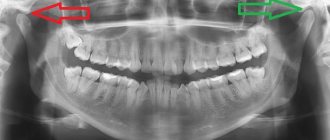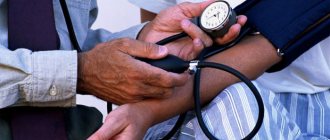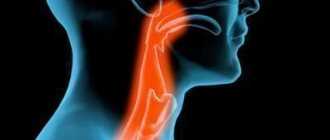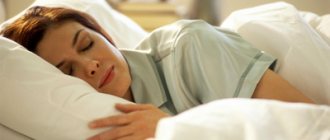With the onset of autumn, air temperature, atmospheric pressure, humidity and daylight hours change significantly. For the human body, this is stress, against the background of which chronic diseases of various types can worsen - from rheumatism to depression. In addition, it is in the fall that the seasonal ARVI epidemic begins.
If you have a predisposition to diseases that make themselves felt in the autumn, it will be useful to make an appointment in advance for a consultation with a doctor at the Diagnostic and Treatment Center. The specialist will select effective preventive measures to prevent exacerbation and mitigate its symptoms.
1. Move
With the onset of cold weather, patients came to our center with complaints of pain in the back, cervical region, knees, elbows... And they all complained the same way. Almost word for word: in the summer I tinkered at the dacha, went out into nature, swam in the river, went for mushrooms - and nothing hurt. And now I’m home from work, I don’t burden myself with anything, there’s a sofa and TV, and in the morning I can barely get out of bed. Everything hurts. Yes, that’s why it hurts because they stopped moving! Physical inactivity is our worst enemy. Make it a rule to do small “industrial exercises” during the day and go for walks every day. In any weather. It happens that our patients even get dogs. To combine healthy walks with communication and positive emotions.
Supplement "Floravit-E"
For a long time, scientists were unable to find a remedy that could have a comprehensive effect on peptic ulcer disease. Its manifestations were too different (pain, heartburn, belching, vomiting), concomitant diseases of the esophagus, chronic disorders of the gallbladder, pancreas and intestines. Moreover, older patients usually experience the disease more severely than younger ones, and complications occur more often. Finally, Russian scientists under the leadership of Professor Bragintseva L.M. based on the extract of the fungus Fusarium sambusinum, they created the natural drug “Floravit-E”, oil and water forms, which help prevent relapses of the disease.
It is recommended to take it:
- "Floravit-E" oil, ½ - 1 teaspoon in the morning on an empty stomach,
- "Floravit-E" water - 1-2 tablespoons 20 minutes before dinner.
- To prevent relapses, a monthly course of "Floravit-E" 3-4 times a year, a preventive course of stomach diseases - 4-5 weeks, 2 times a year.
Clinical trials for this drug were conducted at the Medical Center of the Presidential Administration of the Russian Federation. They showed that its inclusion in complex therapy for exacerbation of peptic ulcer disease, and even more so in the preventive treatment of patients with peptic ulcer disease and to prevent the occurrence of stomach diseases, has a beneficial effect on all causes of the possible occurrence of ulcers and exacerbation of an existing disease, as well as disorders of concomitant gastrointestinal diseases. intestinal tract. Floravit improves the general well-being of patients, mood, appetite, and improves the patient’s quality of life. A repeated course of preventive treatment is carried out at the time of a possible exacerbation of the disease individually for each person (this can be any season of the year) using individual, modified herbal medicine.
Read about herbal medicine for gastric and duodenal ulcers in a separate article. There are prescriptions for herbal infusions, which help well, judging by the reviews of patients.
Ask general questions in the comments. Personal - in the “Ask a Question” form in the site header.
Health to you, dear readers!
Source: bredihina.ru
Keep drinking regime
In autumn and winter we begin to drink less water. And this immediately affects the body. More wrinkles appear and the skin is dehydrated. Accordingly, the load on the vessels increases. Water is not only about the beauty and elasticity of the skin. This is also the elasticity of tissues from the inside. And in order to maintain the constancy of the internal environment of the body, it must be replenished. Clean water is the best way. What kind of water should you drink: warm or cold in the cool season? According to circumstances. Hot and warm water is absorbed faster and allows you to warm up, blood pressure rises, and the body does not waste energy on self-warming. Cold water, accordingly, is the opposite. To avoid thickening the blood and causing blood clots, train yourself to start your morning with a glass of water at room temperature.
How to get rid of autumn depression
Let's look at some ways to deal with it.
There are four main types of treatment:
- drug treatment;
- light therapy;
- psychotherapy;
- taking vitamin D.
They can be used separately or in combination.
To treat autumn depression in women, as well as in men, selective serotonin reuptake inhibitors (SSRIs) are used - Prozac, Fluoxetine. The Food and Drug Administration has also approved the use of Bupropion, another type of antidepressant, to treat the disorder.
As with other medications, SSRIs have side effects. Talk to your doctor about the possible risks of using this medication. You may have to try several different antidepressants before you find one that improves your symptoms without causing problematic side effects.
Light therapy
Light therapy has been a mainstay therapy since the 1980s. The idea behind light therapy is to replace the weakened sunlight of the fall and winter months with daily exposure to bright artificial light. Symptoms of depression can be reduced by sitting in front of a light box first thing in the morning every day from early fall to spring.
Psychotherapy
Cognitive behavioral therapy (CBT) is a type of psychotherapy that is very effective for seasonal affective disorder. Cognitive behavioral therapy relies on identifying negative thoughts and replacing them with more positive ones, along with a technique called behavioral activation. Behavioral activation seeks to help a person find fun and enjoyable activities, whether indoors or outdoors, to better cope with winter.
Temper your vessels!
Everyone needs to control their blood pressure, especially those with unstable blood pressure. In any season. And especially in the off-season! In the summer and warm autumn, our blood vessels were dilated, the body adapted to this state. And with the onset of cold weather, the blood vessels begin to narrow. And, of course, this is stress for the body. At a young age, when the walls of blood vessels are elastic, the body quickly rebuilds itself. With age, this process occurs more slowly. In the intermediate period, while restructuring is taking place, a person adapts to new weather conditions and may often be accompanied by general fatigue, surges in blood pressure... What to do? Answer: harden the vessels with a contrast shower so that they get used to contracting and expanding painlessly. Why is it so beneficial to swim in ponds in summer? We sunbathed, dilated our blood vessels - and into cool water... Excellent vascular exercise! Hence the next advice...
Treatment of exacerbation of gastric and duodenal ulcers
Today there are accepted methods of antiulcer therapy during exacerbation of the disease. These include:
- gastric secretion blockers,
- drugs that activate intracellular protective mechanisms, improve the motor function of the stomach, normalize the nervous system of a sick person,
- course of antibacterial therapy against Helicobacter pylori.
But the selection of medicines is always individual!
A prerequisite for preventive treatment is:
- refusal to take drugs that cause ulcers,
- to give up smoking,
- refusal to drink alcoholic beverages,
- carrying out therapeutic and preventive measures.
Eat right
Simple food is best. The shorter the composition on the product packaging, the healthier it is. Cholesterol is formed from preservatives and all sorts of additives that modern products are stuffed with. In Soviet times, foods were simple, and most people simply did not know what cholesterol was. There is nothing better than vegetables from your own garden, farm meat and lard. By the way, lard in moderate doses is very useful in the cold season. Don't forget to support your bones with dairy and dairy products.
Insulate yourself wisely
The saying about “keep your feet warm and your head cold” is good for... sleep. In fact, it is the head - the vulnerable part of the body - that should be carefully protected. Especially if you value your hair. As I already said, the cold causes the blood vessels to narrow, the hair follicles cease to be properly supplied with blood, and hence the hair loss that those who like to go without hats so often complain about. We also have a lot of nerves on our face. And if the nerve endings are close to the surface of the skin, then neurological problems are inevitable during hypothermia. If inflammation is not treated in time, the condition becomes chronic and then it is very difficult, and sometimes almost impossible, to restore the face. So the head, neck, legs and arms must be reliably protected. But our body does not need excessive insulation.
Reasons for exacerbation of VSD in autumn
People suffering from vegetative-vascular dystonia are very sensitive to external factors. They react more sharply than others to weather changes and can have a hard time withstanding magnetic storms.
This is due to impaired functioning of the nervous system and weakened blood vessels. It should be remembered that VSD is not a disease, but a functional disorder. It is completely reversible, although recovery from it may take a long time.
Autumn blues are also common for people with normal health. It is often observed in suspicious, overly responsible, pedantic individuals, as well as in very impressionable people who are easily influenced by information. For an impressionable person, it is enough to read or hear that there will be a strong magnetic storm tomorrow, and he will definitely find symptoms and feel really bad. This is precisely the degree of suspiciousness that many VSDers possess.
Autumn blues and exacerbation of neurosis are more often recorded in women than in the stronger sex. This period is characterized by general depression, mood instability, and a half-asleep state.
But still, the main reason for autumn depression and poor health is the lack of sunlight.
Short daylight hours, vitamin C deficiency and lack of sunlight cannot but affect the well-being and condition of the body during the autumn winter cold. Scientists have found that such conditions affect changes in hormonal levels.
This occurs due to insufficient production of the most important hormonal substances in the human body, such as dopamine (the hormone of wakefulness, good mood) and melatonin (the hormone of sleep).
The problem is that with a lack of sun over a long period of time, an incorrect ratio of these hormones can be observed: usually in winter, melatonin is produced in large quantities, while there is a critical lack of dopamine in the body.
Changes in pressure, air temperature and humidity are stress factors for humans. Stress reduces immunity, and people often get sick in the fall. It is very important during this transition period to receive good nutrition, rich in vitamins. Science has proven that the intestines control a person and influence decision making. One of the basic human instincts is the need for nutrition. It is vital. The stomach and intestines also have nerve cells that are connected to the brain and affect a person’s emotional background.
In addition, cloudy weather and short daylight hours affect:
- internal biorhythms;
- immune system;
- natural skin renewal processes;
- vitamin D production processes that cannot function normally when there is a lack of sunlight;
- endocrine system;
- cardiovascular system;
- reproductive function.
All this goes almost unnoticed for people with good health, a strong psyche and a stable nervous system.
But VSDers cannot boast of such data, so they have a hard time experiencing the change of seasons.
Beware of herpes
In the autumn-winter period, many begin to suffer from herpetic rashes. The herpes virus itself is present in the body of 98% of people. But it is in a dormant state when we are healthy. By the way, like many other viruses and microorganisms that live in us and thereby protect us from external influences. You can recall the famous novel “War of the Worlds” by H.G. Wells. Where the attacking Martians were unable to conquer the earth because after 21 days everyone died. They were struck by terrestrial pathogens, against which the Martians had no immunity. So, in order not to wake up the dashing, while it is quiet, try not to get overcooled and... do not get nervous. And remember, the herpes virus is dangerous because it affects both external and internal organs. If you are tormented by frequent rashes, get tested and consult a specialist.
Getting rid of autumn depression on your own
If the symptoms of the disease are mildly bothersome and you don’t want to see a doctor, you can try to cope on your own. To do this, you should not drink alcoholic beverages - one of the most important rules. To achieve positive results in the fight against autumn depression, the following actions can help:
- Spend more time in the fresh air, trying to be outside when the sun is shining. This medicine for autumn depression will help you get the missing components into the body, after which you will feel an increase in strength and your condition will improve.
- Do not allow factors that cause negativity into your life. Try not to conflict with others, avoid problematic conversations. This does not mean that there is no need to talk about emerging problems. It is worth trying to solve problems constructively, avoiding nervousness and harsh expressions of your position.
- Eating foods that are rich in vitamins: apples, oranges and other available goodies, preferably with bright colors, will help fill the deficiency of substances, and their consumption will lift your spirits. This remedy for autumn depression is effective. Its importance should not be underestimated.
- Eat well, work only during the allotted time. We can talk for quite a long time about how to overcome autumn depression. The point is that you need to recognize the existing problem and take the path of correcting it, finding constructive methods for this.
We suggest you familiarize yourself with How to help yourself with depression and neurosis, neurodepressive syndrome
The important point is to realize that the problem actually exists. No one will start to fight a non-existent problem. Afterwards, you should decide that it is necessary to act, because the well-being of relationships, the environment at work and at home depends on this. Knowing how to deal with autumn depression will help you cope with it when the first signs of a problem appear. The problem will pass, you just have to want it.
Drink vitamins
In winter, our diet is poor in foods containing vitamins, especially vitamin C. But it is not produced by the body and comes to us only from the outside. So it’s good to drink it in preventive doses. Just like an excellent and “penny” antioxidant - the well-known “Aevit” with vitamins A and E. By the way, vitamin A is not only beautiful skin, but also healthy eyes. For bones that become dry and brittle due to lack of sun, regular Aquadetrim - vitamin D - is perfect.
Joint diseases
In the presence of chronic diseases and age-related changes, joints may react to changing weather. Arthrosis, arthritis, rheumatism - all these diseases often worsen in the fall, since at this time of year the atmospheric pressure and air humidity change significantly.
An aggravation is indicated by aching pain in the area of the knees, shoulders, elbows and other large joints; in addition, the mobility of the limbs may decrease. With these symptoms, it is necessary to promptly consult a rheumatologist.
To normalize joint mobility and eliminate pain, the specialist will recommend, for example, the following methods of treatment and supportive therapy:
- Take anti-inflammatory drugs and chondoprotectors as prescribed;
- Engage in physical therapy according to a specially selected scheme;
- Take a course of physical therapy for joint health.
It is important to tune in to long-term treatment, and possibly lifestyle changes. Damaged cartilage tissue in the area of the affected joint will not recover completely, but a properly selected set of measures can significantly alleviate the condition.
Train your brain
Hercule Poirot insisted: “Never forget the gray cells!” The famous detective masterfully played the cello and checkers. And his colleague Sherlock Holmes solved mysterious crimes while playing the violin. And he regularly trained his gray cells by playing chess. Alzheimer's, senile dementia... People of art practically do not suffer from these ailments, who play musical instruments until their very last days, paint pictures, compose music, poetry, prose, learn roles... In Europe, many pensioners now take lessons in playing musical instruments.
An excellent workout for the brain is card games like poker and preference, which the Russian nobility were so fond of. Read, solve crosswords. Learn to knit! Yoga for the brain is what this handicraft is called. In addition to concentration and attention, this is the development of fine motor skills and a direct effect on brain activity. Look at the grandmothers who knit a lot. They may complain of joint pain and high blood pressure. But, as a rule, they are all of sound mind and good memory.
With retirement, many people experience rapid decline. The reason for this is free time and doing nothing. It is better to be active, healthy and be in society as long as possible.
Development of relapse
Periods of exacerbation develop sequentially in 4 stages: initiation, full clinical picture, regression and residual effects. Each stage has symptoms that are used for diagnosis.
The duration of the initial period ranges from 2-3 days to 1 month. During this stage, the patient experiences sleep disturbances, headaches of various localizations, emotional lability, anxiety, rapid physical and mental fatigue, hypochondria and distrust of other people.
The next period is the stage of advanced clinical manifestations. Characteristic signs of schizophrenia appear: catatonic, paranoid disorders, hallucinations, dissociation of mental functions, etc. At this stage, identifying an exacerbation does not present difficulties for psychiatrists.
At the stage of symptom regression, clinical signs soften. This primarily concerns productive disorders. The following changes are characteristic:
- irritability and aggressiveness decreases;
- emotional lability disappears, general mood stabilizes;
- communication with surrounding people is normalized.
During the period of residual effects, it is possible to identify mild symptoms: simple auditory hallucinations and delusional constructs that do not affect behavior. If, during an exacerbation of schizophrenia, the patient received complex treatment, this stage may be absent. In these cases, recovery from psychosis is observed at the stage of regression of symptoms.








